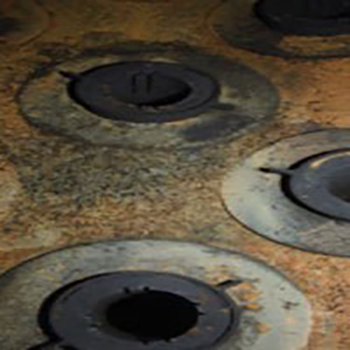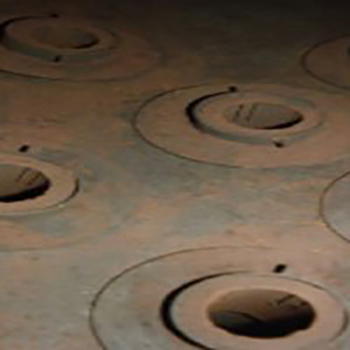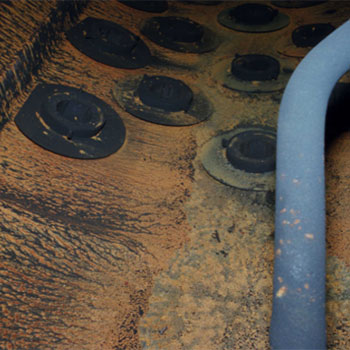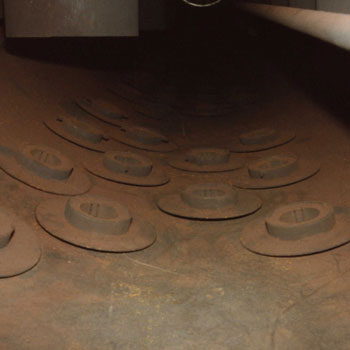Hot water treatment for boilers and pipes in city districts
A trouble-free district heating network involves an optimal anticorrosion and antiscaling treatment of the water used in the process.
In order to avoid pipes corrosion that could cause numerous water management problems (water leakages, energy losses, unwanted intakes of untreated water, as well as the interruption of heated water supply for the end user) while optimizing the chemical consumption and minimizing maintenance costs and environmental impact, our FINEAMIN® water treatment chemicals can be adjusted to particular applications: hot water networks, high-pressure boilers, condensate return pipes etc.
The use of polyamines for water conditioning in the distant heating network and cogeneration plants is a green alternative to the previous chemical regimes involving hydrazine and sodium phosphate.
FINEAMIN® chemicals come as “all-in-one” products with multiple components – film-forming amines, alkalizing amines and polyacrylates with cleaning and preventing effect.
FINEAMIN® treatment is dispersing any existing iron oxide deposits and inhibits corrosion inside the pipes network by forming a thin magnetite film on all heat transfer, metal surfaces. The newly formed magnetite layer obstructs oxygen from getting to the metal parts, new deposits cannot be build up anymore as the polyamines barrier “repels” any water carried impurities and pH is kept under control.
The district heating supply water goes through an endless cycle inside a closed pipeline system. And FINEAMIN® chemical mixtures travel with it, protecting all the individual parts of that local or distant heating city network all along the cycle:
- the central plant, especially the boilers,
- the distribution pipe network, most expensive part of a district heating system,
- any additional equipment: fittings, heat exchangers, condensate filters etc.
FINEAMIN polyamines-based inhibitors improve the operation of high pressure boilers during frequent start-ups and shut downs. After a shut down, steam has higher purity allowing turbines to enter directly into operation.
Furthermore, using polyamines with steam condensate from the city centre to the district heating plant, can determine the reduction in iron content and increase the lifespan of the filter cartridges from for condensate cleaning resulting in cost savings and plant availability.
The process of replacing hydrazine with filming amines does not require much technical effort: the existing dosing tanks and pumps can to be used. Working with polyamines and storing them does not require any special safety measures.
FINEAMIN® products are tested by the German Institute of Hygiene (DIN EN 1717 and DIN 1988-100) and approved for the use in heating systems with domestic hot water production.
One very detailed paperwork about Munich district heating network (using Fineamin since 2007) is describing the effects of polyamines: “20 years of experience with polyamines” – Dr. Karin Thelen, Leitung SWM-Labor, stadtwerke Munchen GmbH; Dipl. – Chem. Wolfgang Schontag, Leitung SWM-Labor, Munchen.




Boiler water tubes before FINEAMIN®
- visible corrosion & deposits in the drum
- unevenly distributed magnetite layer
- visible unprotected metal parts
After 3 months with FINEAMIN® 06
- the whole drum interior is covered with a brown, continuous magnetite layer
- no unprotected metal parts
For water conditioning inside a district heating cycle, we use a high range of corrosion inhibitors and antiscalants, oxygen scavengers, iron oxide deposits and scale dispersants, alkalizing products for pH control and correction:
FINEAMIN® recommended products for water-steam cycles: FINEAMIN® 06, FINEAMIN® 19, FINEAMIN® 12, FINEAMIN® 18
A custom-made water chemical treatment increases the efficiency and the economic viability. Any water management plan concerning the chemical regime of the plant will be established ONLY with our specialists and depending on the plant parameters (steam tons/hour, pressure, etc).
Your System Parameters Form
To be able to find together the best solution for water treatment in your district heating network, please send us an e-mail to the e-mail address specified on our Contact page.
If any of the following forms applies to your system, please try to fill in as much as you can and attach to the e-mail.

